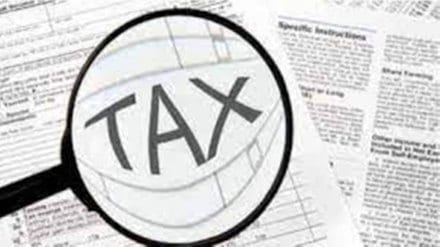Dr. Suresh Surana
Since taxpayers with foreign investments or assets or earning income from foreign sources may receive income-tax notices for non-disclosures and also taking into account the severe penalty of Rs. 10 lakhs and prosecution, it is recommendable that every taxpayer ensures proper disclosure of their foreign assets. Thus, taxpayers are advised to furnish details of all foreign investments or assets with utmost care.
Schedule FA is required to be furnished by every Indian resident taxpayer in order to furnish details of foreign assets or accounts, held at any time during the relevant accounting period.
Schedule FA Details
- Foreign Depository accounts
- Foreign Custodial accounts
- Foreign Equity and Debt Interest
- Foreign Cash Value Insurance Contract or Annuity Contract
- Financial Interest in any Entity outside India
- Details of Immovable Property
- Details of any other Capital Asset
- Any other account located outside India in which you are a signing authority
- Trust created outside India in which you are a trustee, a beneficiary, or a settlor
- Any other income derived from any foreign source
Who is required to fill Schedule FA?
Schedule FA must be filled by every individual taxpayer who is a resident and ordinarily resident in India and owns or has a beneficial interest in assets abroad or derives income from foreign sources during the relevant calendar year. As such, Schedule FA need not be filled by those having a status of either non-resident (NR) or Resident but Not Ordinarily Resident (RNOR).
Filling Schedule FA
This schedule need not be filled up by an individual being non-resident (NR) or Resident but Not Ordinarily Resident (RNOR).
The specified taxpayer has to furnish details of such foreign assets if they were held even for a single day during the relevant calendar year.
The foreign currency should be converted into INR using the telegraphic transfer buying rate (TTBR). TTBR rate would mean such an exchange rate adopted by the State Bank of India having regard to the RBI guidelines.
The disclosure requirements in Schedule FA are required to be furnished in case such foreign asset has been held at any time during the relevant calendar year. For instance, the individual taxpayer shall furnish details of all foreign assets held at any time between January 1, 2022, and December 31, 2022, in the return to be filed for Financial Year 2022-23.
It is important that salaried employees who are holding ESOPs in foreign companies are also required to fill out Schedule FA and provide details of the shares/stocks held by them.
Period of transactions in Schedule FA
Disclosure in Schedule FA of ITR-2 or ITR-3 needs to be made by the resident taxpayers holding any asset including financial interest in any foreign entity and/or has signing authority in any account outside India or earning income from foreign sources. Such reporting is required for any foreign asset held at any time during the relevant “accounting period”.
However, the income tax department, with effect from AY 2022-23, has replaced the expression “accounting period” with “calendar year ending as on 31st December” in the ITR Forms notified, which implies that the taxpayer shall furnish the details of all foreign assets held between 1st January and 31st December in returns to be filed for the relevant assessment year.
Therefore, the latest Income-Tax Return forms notified by CBDT for the AY 2023-24 require taxpayers to report in Schedule FA all such foreign assets held by them during the calendar year 2022.
Penalties for not filing Schedule FA
Section 43 of the Black Money (Undisclosed Foreign Income & Assets) & Imposition of Tax Act 2015 imposes a penalty of Rs. 10,00,000 on any person, being a resident and ordinary resident in India for failure to furnish in the income tax return any information or for furnishing inaccurate relating to an asset (including financial interest in any entity) located outside India, held by him as a beneficial owner or otherwise, or in respect of which he was a beneficiary, or relating to any income from a source located outside India, at any time during such relevant year.
It is pertinent to note that penalty under this section shall not apply in respect of an asset, being one or more bank accounts having an aggregate balance that does not exceed a value equivalent to Rs. 5,00,000 at any time during the relevant year.
Further, the provisions of Section 276C(1) of the IT Act may be attracted leading to prosecution (subject to rigorous imprisonment for a period of 6 months to 7 years and/or fine) if the revenue is of the view that non-disclosure of foreign assets in Schedule FA results in a willful attempt to evade tax, penalty or interest chargeable or imposable or under-reports his income.
(Author is Founder, RSM India)
